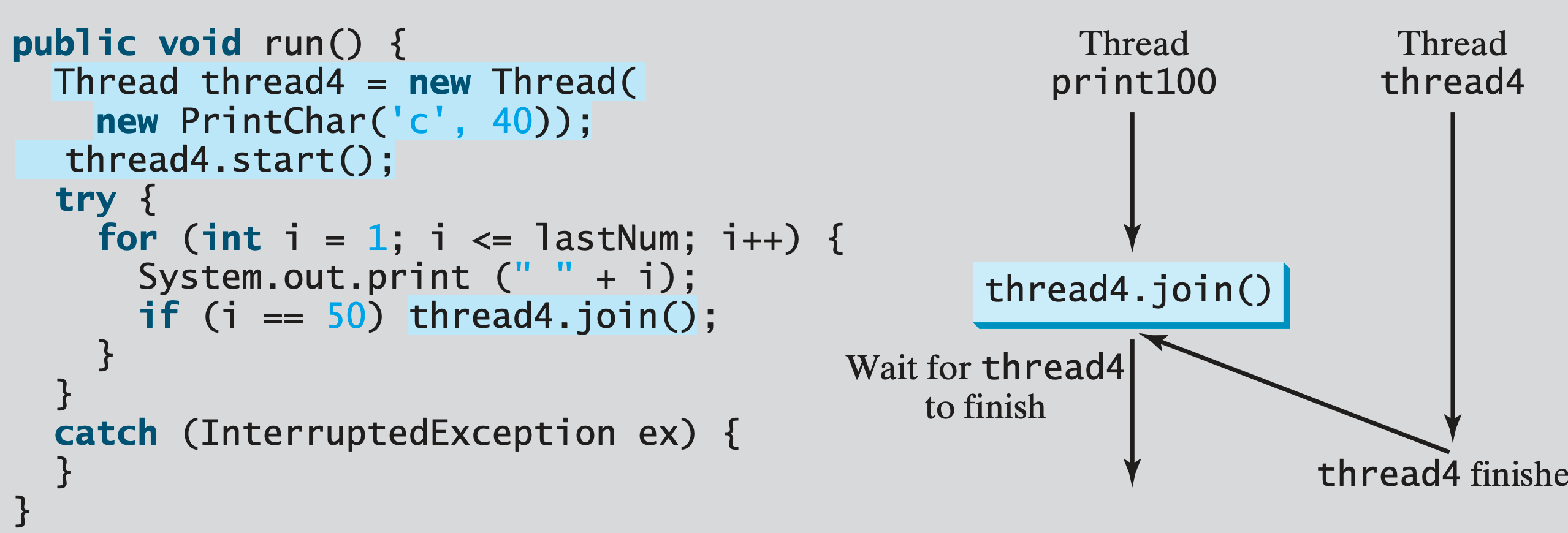4 Concurrency
Thread Object
Runnable and Thread
@FunctionalInterface
public interface Runnable{
void run();
}
public class Thread implements Runnable{
Thread(Runnable task);
static Thread currentThread();
final String getName();
Thread.State getState();
final int getPriority();
final void join();//Waits for this thread to terminate.
void run();
static void sleep(long millis);
void start();//A thread can be started at most once. Throws IllegalThreadStateException if the thread was already started
static void yield();//the current thread is willing to yield
}
public class HelloRunnable implements Runnable {
public void run() {
System.out.println("Hello from a thread!");
}
public static void main(String args[]) {
new Thread(new HelloRunnable()).start();
//写法2
new Thread(()->System.out.println("Hello from a thread!")).start();
}
}
join
- Schedules thread4 to begin execution. Thread4 will execute independently of the main thread
- join waits for thread4 to finish

Interrupt
public class A implements Runnable
{
public void run(){
try {
Thread.sleep(2000);
}
catch (InterruptedException ie) {
ie.printStackTrace(); // interrupt sleep
}
System.out.println("Hello Java");
System.out.println(Thread.currentThread());
}
public static void main(String[] args) {
A a = new A();
Thread t = new Thread(a, "Child Thread");
t.start();
t.interrupt();
}
}
Synchronization
It is not possible for two invocations of synchronized methods on the same object to interleave
public class SynchronizedCounter {
private int c = 0;
//Synchronized Method: The lock release occurs even if the return was caused by an uncaught exception
public synchronized void increment() {
c++;
}
public synchronized void decrement() {
c--;
}
public synchronized int value() {
return c;
}
}
public class MsLunch {
private long c1 = 0;
private long c2 = 0;
private Object lock1 = new Object();
private Object lock2 = new Object();
public void inc1() {
synchronized(lock1) {
c1++;
}
}
public void inc2() {
synchronized(lock2) {
c2++;
}
}
}